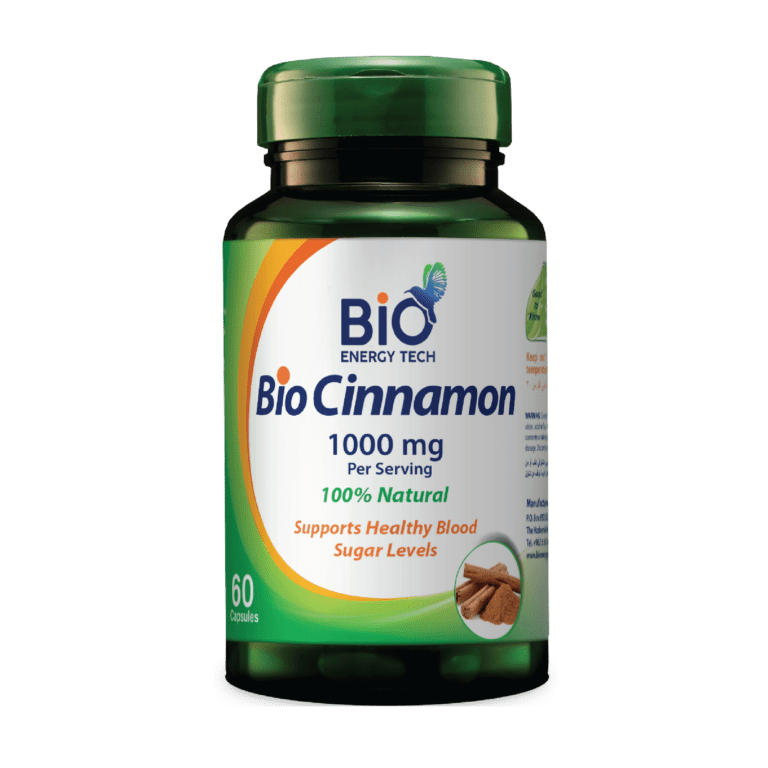Cinnamon is a widely cultivated plant in India which has several different types. People use cinnamon bark to make medicines or as a spice to add to their food. Cinnamon is used mainly for diabetics and those suffering from new onset of high blood sugar. It is also used for cases of bloating, flatulence and obesity.
Cinnamon’s Mechanism of Action
Cinnamon contains hydroxychalcone, which greatly helps in increasing the effectiveness of insulin. Cinnamon also contains compounds that increase glucose uptake by cells which increases blood sugar control. Additionally, cinnamon contains a compound called cinnamaldehyde, which may have antibacterial and antifungal activity. Several studies have also shown that it stops the growth of certain tumors.
Benefits of Cinnamon
- Cinnamon & Diabetes
Studies have shown that cinnamon has many benefits in controlling blood sugar readings, as it contains the compound hydroxychalcone, which helps increase insulin sensitivity leading to an increase in blood sugar utilization. This leads to a decrease in your blood sugar readings.
- Cinnamon & Mosquitoes
Studies have shown that applying cinnamon oil to the skin prevents and repels mosquitoes and therefore prevents mosquito bites.
- Cinnamon is an Antioxidant:
Cinnamon contains polyphenols, which are powerful antioxidants.
- Cinnamon & Heart
While cinnamon has proven effective for diabetics. Some studies have also shown its effectiveness in reducing triglycerides and cholesterol. Elevated blood sugar and lipid readings are among the most dangerous factors that pose a risk to the heart and lead to many diseases such as strokes.
- Cinnamon & Nerves
Preliminary laboratory studies have observed that cinnamon has proven effectiveness in inhibiting a protein in the brain called Tau, which is a hallmark of Parkinson’s disease. However studies are still ongoing at this moment.
- Cinnamon & Infections
Cinnamon contains the compound cinnamaldehyde, which has been shown to play a major role in treating fungal and bacterial infections.
- Cinnamon for Weight Loss
Some studies have found that the compound cinnamaldehyde increases the production of heat inside the human body, therefore some people consider it a winter drink beverage to generate warmth.
Heat energy is produced by burning calories in the body, hence some researchers have noted that cinnamon may have an important role in slimming and weight loss.
- Other benefits of cinnamon still being studied:
- Abnormal menstruation.
- Chest pain.
- Erectile dysfunction.
- High blood pressure disease.
Side Effects of Cinnamon
Cinnamon is generally considered a safe food to consume and use. And just like anything else, it should be consumed in moderation. It was also noted that excessive cinnamon consumption may pose risks to the liver because it contains coumarin, which can harm the liver if consumed in large amounts.
- Cinnamon for Pregnant & Breastfeeding Women
There is insufficient information about how cinnamon affects pregnant or breastfeeding women. There is also limited data about its benefits for pregnant or breastfeeding women, therefore it is advised to be avoided during pregnancy and lactation.
- Cinnamon & Babies
Children’s consumption of cinnamon is safe, and there have been no side effects documented, however it should be consumed in moderation.
- Cinnamon & Diabetes
This article also mentioned that cinnamon has a great effect on controlling blood sugar and increasing insulin sensitivity. Thus taking cinnamon along with antihyperglycemic medications may lead to hypoglycemic episodes. Consequently it is advised to monitor diabetic patients taking cinnamon and consult a doctor if any medications need dosage adjustment.
Drug interactions with Cinnamon
All of the drugs mentioned below do not interfere directly with cinnamon. However it is advised to avoid cinnamon consumption if a person takes one of these medications.
- Cinnamon & Antihyperglycemic Medications
As previously mentioned, blood sugar readings should be monitored in order to avoid hypoglycemic episodes.
- Cinnamon & Antilipidemic Medications
Taking cinnamon with some statins may increase the risk of liver damage because lipid medications lead to slight changes in the liver. Such medications include:
- Lovastatin (Mevacor)
- Pravastatin (Pravachol)
- Simvastatin (Zocor)
- Medicines Undergoing Liver Metabolism:
- Acetaminophen (Tylenol)
- Amiodarone (Cordarone)
- Carbamazepine (Tegretol)
- Isoniazid (INH)
- Methotrexate (Rheumatrex)
- Methyldopa (Aldomet)
- Fluconazole (Diflucan)
- Itraconazole (Sporanox)
- Erythromycin
- Phenytoin (Dilantin)






